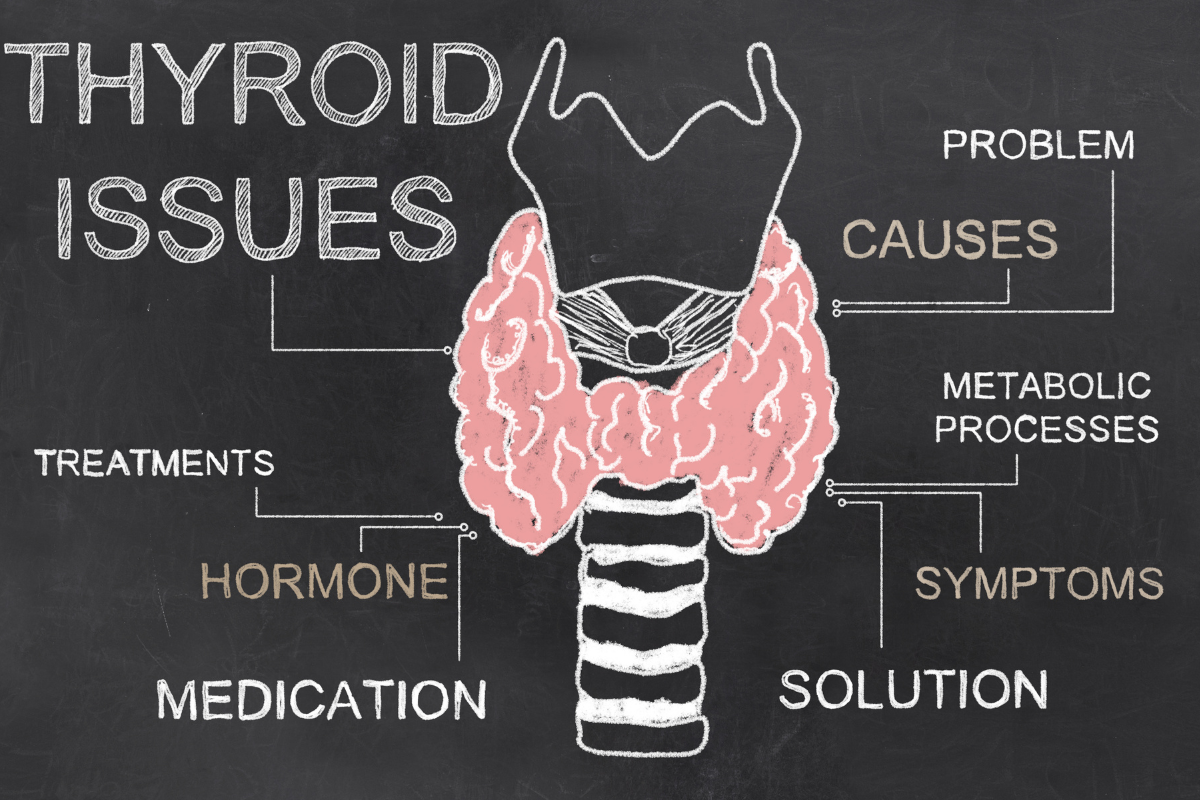The thyroid gland is crucial for our body’s normal operations and it's responsible for a plethora of our body’s functions. This butterfly-shaped gland is located at the front of our necks and it's part of the endocrine system. The thyroid gland aids in metabolizing proteins, fats, and carbohydrates and helps in the maintenance of body temperature, heart rate, and blood pressure. For such a tiny gland, it handles a lot of work.
With the modern lifestyle, thyroid disorders have become a common occurrence in people all over the world. There are two types of thyroid disorders: hypothyroidism and hyperthyroidism. In this blog post, we will be discussing the differences, causes, and symptoms of both.
Hypothyroidism
In individuals suffering from hypothyroidism, their thyroid gland is unable to produce sufficient hormones for proper functioning. The thyroid gland is responsible for the body's metabolic function. Hence, scarce production of the same leads to a disrupted metabolism, usually causing weight gain.
Causes
A common cause of hypothyroidism is Hashimoto’s thyroiditis, where the body tends to attack its immune system. As a result, the thyroid gland stops producing hormones over time, causing hypothyroidism. This is referred to as an autoimmune condition and it occurs more frequently in women than in men. Other causes of hypothyroidism include surgical removal, radiation treatment, congenital conditions, and thyroiditis. Consumption of certain medications can also trigger hypothyroidism.
Symptoms
Common symptoms of hypothyroidism include fatigue, weight gain, forgetfulness, constipation, dry skin, and cold sensitivity.
Hyperthyroidism
In individuals suffering from hyperthyroidism, their thyroid gland produces thyroid hormones in excess. The thyroxine (T4) and triiodothyronine (T3) start functioning more actively than usual. An overactive thyroid gland means that most of your bodily processes speed up.
Causes
Just like hypothyroidism, hyperthyroidism is also caused by an autoimmune condition called Graves’ disease. This disturbance leads to the body attacking itself and secreting too much thyroid hormone. Other causes of hyperthyroidism include abnormal iodine intake, excess medication, genetics and abnormal growth of thyroid tissues. Irritation of the thyroid gland, known as thyroiditis, is also among the common causes.
Symptoms
Since hyperthyroidism speeds up bodily functions more than normal, the symptoms are often the opposite of hypothyroidism. Common symptoms include hand tremors, increased heartbeat, bone degeneration, weight loss, nervousness, muscle weakness, and brittle skin. One can also experience weak or irregular menstrual cycles, irritability, and troubled sleeping patterns.
Differences
Thyroid hormones impact the metabolism quite significantly. While hypothyroidism slows down the production of the hormone, hyperthyroidism speeds it up. This leads to a disturbed metabolic rate in both cases, just in opposite ways. Unhealthy weight is gained in the former and lost in the latter. Another difference is the hormone production in both disorders. Patients of hypothyroidism experience low production of hormones, whereas patients of hyperthyroidism experience a surge in the same.
Final thoughts
Hypothyroidism is more common than hyperthyroidism. However, one isn’t better than the other. An under-active or overactive thyroid can be equally dangerous. A lot of the time this condition goes undiagnosed due to its symptoms being played off as normal “stress”. If any of your current symptoms coincide with either of the diseases, we urge you to get yourself tested to make sure. There isn’t exactly a cure for either of the conditions, but a few healthy lifestyle changes can help make significant improvements.

